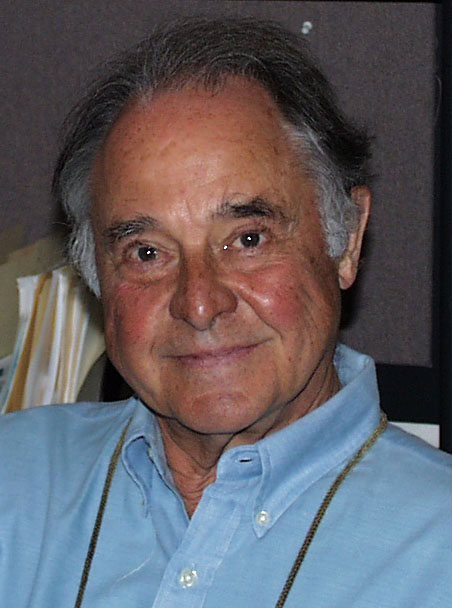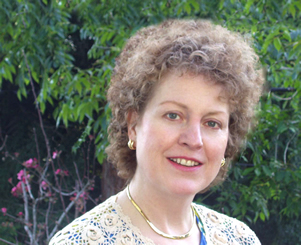TechnoSonics XIX: Concert I
 American composer and electronic music pioneer John Chowning was born in Salem, New Jersey in 1934. Following military service and four years at Wittenberg University, he studied composition in Paris with Nadia Boulanger. He received the doctorate in composition (DMA) from Stanford University in 1966, where he studied with Leland Smith. In 1964, with the help of Max Mathews of Bell Telephone Laboratories and David Poole of Stanford University, he set up a computer music program using the computer system of Stanford's Artificial Intelligence Laboratory. Beginning the same year he began the research that led to the first generalized surround sound localization algorithm. Chowning discovered the frequency modulation synthesis (FM) algorithm in 1967. This breakthrough in the synthesis of timbres allowed a very simple yet elegant way of creating and controlling time-varying spectra. Inspired by the perceptual research of Jean-Claude Risset, he worked toward turning this discovery into a system of musical importance, using it extensively in his compositions. In 1973 Stanford University licensed the FM synthesis patent to Yamaha in Japan, leading to the most successful synthesis engine in the history of electronic musical instruments. [interview about FM synthesis Jun 17, 2015, Barcelona http://rwm.macba.cat/en/sonia/john-chowning-/capsula]
American composer and electronic music pioneer John Chowning was born in Salem, New Jersey in 1934. Following military service and four years at Wittenberg University, he studied composition in Paris with Nadia Boulanger. He received the doctorate in composition (DMA) from Stanford University in 1966, where he studied with Leland Smith. In 1964, with the help of Max Mathews of Bell Telephone Laboratories and David Poole of Stanford University, he set up a computer music program using the computer system of Stanford's Artificial Intelligence Laboratory. Beginning the same year he began the research that led to the first generalized surround sound localization algorithm. Chowning discovered the frequency modulation synthesis (FM) algorithm in 1967. This breakthrough in the synthesis of timbres allowed a very simple yet elegant way of creating and controlling time-varying spectra. Inspired by the perceptual research of Jean-Claude Risset, he worked toward turning this discovery into a system of musical importance, using it extensively in his compositions. In 1973 Stanford University licensed the FM synthesis patent to Yamaha in Japan, leading to the most successful synthesis engine in the history of electronic musical instruments. [interview about FM synthesis Jun 17, 2015, Barcelona http://rwm.macba.cat/en/sonia/john-chowning-/capsula]
Chowning was elected to the American Academy of Arts and Sciences in 1988 and awarded the Honorary Doctor of Music by Wittenberg University in 1990. The French Ministre de la Culture awarded him the Diplôme d’Officier dans l’Ordre des Arts et Lettres in 1995. He was given the Doctorat Honoris Causa in 2002 by the Université de la Méditerranée, by Queen’s University in 2010, Hamburg University in 2016. and Laureate of the Giga-Hertz-Award in 2013. He taught computer-sound synthesis and composition at Stanford University's Department of Music. In 1974, with John Grey, James (Andy) Moorer, Loren Rush and Leland Smith, he founded the Center for Computer Research in Music and Acoustics (CCRMA), which remains one of the leading centers for computer music and related research. (from https://ccrma.stanford.edu/people/john-chowning) More: SoundonSound profile of John Chowning
 Coloratura soprano Maureen Chowning studied at the Boston and New England Conservatories of Music before moving to the San Francisco Bay area. She has since appeared on the Public Broadcasting System's NOVA series and Smithsonian World with Max Mathews, demonstrating his Radio Baton and conductor program. She has also performed at concerts in the UK, Canada, Poland, and Japan and at the International Electronic Music Festival at Bourges, France, where in 1990 she gave the world premiere of "Solemn Songs for Evening" by Richard Boulanger and in 1997 she gave the premiere of "Sea Songs" by Dexter Morrill. In addition to singing the premiere of Joanne Carey's "Three Spanish Songs", she and the composer performed this piece in Poland, Hong Kong, Vancouver and Mexico.
Coloratura soprano Maureen Chowning studied at the Boston and New England Conservatories of Music before moving to the San Francisco Bay area. She has since appeared on the Public Broadcasting System's NOVA series and Smithsonian World with Max Mathews, demonstrating his Radio Baton and conductor program. She has also performed at concerts in the UK, Canada, Poland, and Japan and at the International Electronic Music Festival at Bourges, France, where in 1990 she gave the world premiere of "Solemn Songs for Evening" by Richard Boulanger and in 1997 she gave the premiere of "Sea Songs" by Dexter Morrill. In addition to singing the premiere of Joanne Carey's "Three Spanish Songs", she and the composer performed this piece in Poland, Hong Kong, Vancouver and Mexico.
In March 2005 she gave the world premiere of "Voices," composed for her by John Chowning, for computer generated sound and solo soprano at the Maison de Radio in Paris and in March 2006 the US premiere as part of a Berkeley Symphony Concert series. Also, Ms Chowning performed "Oscura" by Jean-Claude Risset in Buenos Aires, Quito and CCRMA, Stanford University. She is noted for her special ability to sing comfortably in alternative tunings, such as the Pierce scale, and in a wide variety of styles. Her repertoire ranges from Handel oratorios, operatic roles such as the "Queen of the Night" from Mozart's "The Magic Flute", to contemporary music including works of Schoenberg, Qui Dong, Servio Marin, and Atau Tanaka. Ms. Chowning has maintained a busy private studio for vocal instruction for 27 years and is very active giving master-classes around the world.
TechnoSonics is an annual themed festival that showcases digital music & intermedia and brings high profile artists to collaborate with UVA composers and faculty performers.
Old Cabell Hall is located on the south end of UVA's historic lawn, directly opposite the Rotunda (map). Parking is available in the Central Grounds parking garage on Emmet Street, in the C1 parking lot off McCormick Rd, and in the parking lots at the UVA Corner. Handicap parking is available in the small parking lot adjacent to Bryan Hall.
These events are free and open to the public. All events are subject to change. Please call 434.924.3052 for more information.
